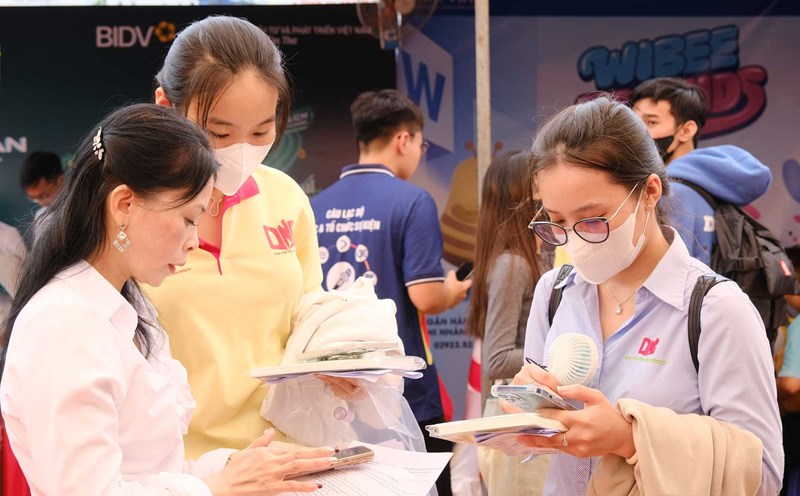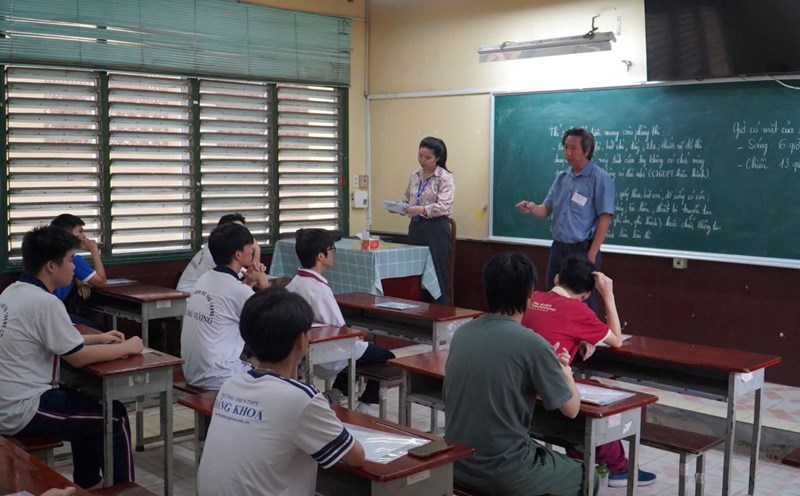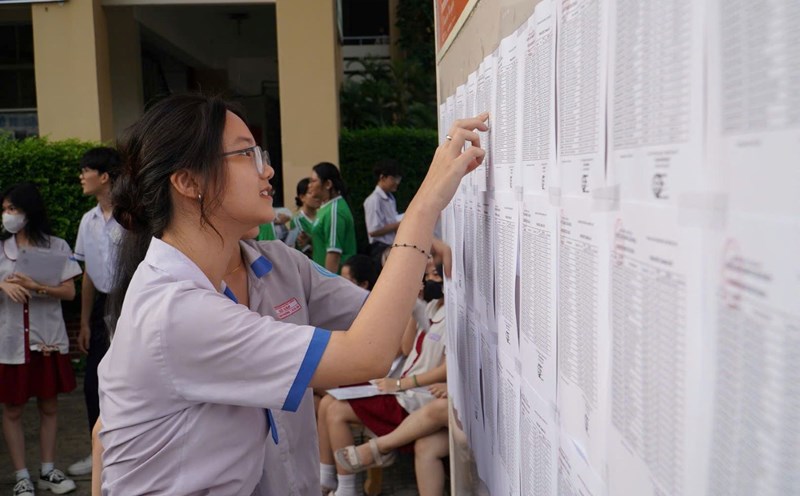The Ministry of Education and Training announced a draft Circular to replace Circular No. 12/2017/TT-BGDDT on quality assessment of higher education institutions, after more than 7 years of application.
The new draft proposes important adjustments, aiming to update international standards, reduce the administrative burden on higher education institutions, and promote a culture of quality assurance in a practical way.
Some main contents of the draft include adding cases of revoking inspection certificates, while clarifying the responsibilities of educational institutions, inspection organizations and management agencies in supervision after assessment.
Clause 1, Article 42 of the draft stipulates that the certificate of quality assessment of a higher education institution with validity period will be revoked if one of the following violations occur:
First case: the recognition of the results of the assessment and issuance of a certificate of quality assessment of a higher education institution when the higher education institution does not meet the conditions in Point a, Clause 2, Article 20 of this Circular.
(Point a, Clause 2, Article 20 stipulates as follows: The criteria are assessed to be met when the higher education institution has an official approach to quality assurance activities; has a system established and operated with clear and consistent policies and processes; has practical evidence of implementation and continuous improvement).
Case 2: Higher education institutions in the assessment period do not meet the requirements for maintaining quality assurance conditions according to the conclusion of the competent authority.
Some other new points of the draft include: Update the assessment standards set according to AUN-QA 3.0.
The new set of standards has been shortened from 25 standards with 111 criteria to 15 standards and 60 criteria, divided into 3 groups: Strategy - System - Results. This streamlining helps eliminate duplication, focusing on core requirements such as: vision, mission, development strategy, financial - human resource governance, innovation, scientific research, labor market linkage and community service.
Innovation in assessment methods. Instead of the previous 7-level scale, the Draft applies 2 assessment levels: achievement and failure. In addition, add a "capable" mechanism: educational institutions can still be recognized if they meet most of the criteria and have a specific improvement plan within a certain period of time. In particular, the Draft proposes 02 options for seeking opinions, including a plan to determine a number of conditions - core criteria that must be met, to ensure that schools focus on the system foundation and accountability to comply with the provisions of Circular No. 04/2025/TT-BGDDT regulating the assessment of training programs of higher education levels.
Integrating the guidance on evaluating criteria and forms into a part of the Circular in the form of attached appendices.
Unlike before, which had to issue separate documents for separate instructions, this Draft integrates all the guidance on evaluating criteria and 15 forms into appendices attached to the Circular. This helps the document become clearer about legality, creating unity in application and facilitating both educational institutions and inspection organizations.
Add specific regulations and enhance transparency.
The draft has specific regulations for schools under the Ministry of Public Security and the Ministry of National Defense to ensure information security requirements. At the same time, other institutions must publicize self-assessment reports and external assessment reports, contributing to improving transparency and accountability in society.
The draft also promotes the application of technology and digital transformation.
The new standards and criteria emphasize the internal quality assurance system (IQA), information management and continuous quality improvement. Educational institutions need to effectively operate data management tools, measure output results, thereby better serving quality supervision, evaluation and improvement.
The Ministry of Education and Training said that with the above new points, the Draft Circular aims to reduce the burden of "streamlining - modernity - integration, while encouraging schools to proactively improve continuously, be more transparent and approach international standards. This is an important step in the roadmap for innovation in higher education quality management for the period 20252030.











